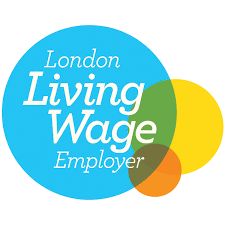As most people are aware, the rates for Universal Credit were reduced by £20 per week in October 2021. This reduction is due to the ending of a temporary £20 a week uplift which was introduced during the Covid-19 pandemic
In this article we look at:
- How much are the Universal Credit standard allowances?
- What circumstances may increase your Universal Credit payments.
- The benefit cap on Universal Credit.
- Where to go for help if you are struggling on Universal Credit.
How much are the Universal Credit standard allowances?
Universal Credit is available to people of working age. You may be able to claim Universal Credit whether you are working but on a low income, or out of work. In our next article we look in more depth at who is eligible and how to apply for Universal Credit.
The amount of Universal Credit you receive is based on various factors including your age and your financial circumstances.
For example, if you are working, the amount of your Universal Credit payment will depend on your earnings and will gradually decrease as your earnings increase. And - as we will see below - there may be additional payments for various other circumstances.
For 2021-2022, the Universal Credit standard allowances per month are:
| Single person | Aged under 25 | £257.33 |
|---|---|---|
| Aged 25 or over | £324.84 | |
| Couple | Both aged under 25 | £403.93 |
| One or both aged 25 or over | £509.91 |
If you live with a partner, you will need to make a joint application for Universal Credit, which will take into account their financial circumstances.
There are various circumstances where you may be entitled to additional payments over and above your Universal Credit standard allowance. Let’s take a look.
What circumstances may increase your Universal Credit payments?
If you are claiming Universal Credit, you may be eligible for additional payments if any of the following circumstances apply to you:
- You have children.
- You are a carer.
- You are unable to work for health reasons.
If you have children
There are three possible additional payments that may apply:
-
Child allowance
- £282.50 per month for your first child (£237.08 if born on or after 6 April 2017);
- £237.08 per month for your second child.
- £646.35 for one child;
- £1108.04 for two or more children.
If you are responsible for one or more children who normally live with you, you may qualify for:
Disabled child allowance
If you have a dependent child who is disabled and in receipt of disability benefits, you may qualify for the Disabled Child Addition. This is paid at either the higher rate of £402.41 or lower rate of £128.89 per month depending on the extent of their disabilities.
Childcare allowance
If you are a working parent on Universal Credit, you may get help with the costs of childcare. The maximum monthly amounts are:If you are a carer
You can get an additional amount of Universal Credit of £163.73 per month if you care for a severely disabled person, in receipt of certain benefits, for at least 35 hours a week.
You could also claim a separate government benefit: Carer’s Allowance of £67.60 a week, but bear in mind that this would then be deducted from your overall Universal Credit entitlement.
If you are unable to work for health reasons
If you are unable to work for health reasons, either permanently or temporarily, there may be additional payments available:
- Limited capability for work and work-related activity payment
- If you have a health condition or disability that prevents you working permanently, you may be able to claim the Limited capability for work and work-related activity payment of £343.63 per month.
- Limited capability for work additional payment
You would need to be evaluated for this through a Work Capability Assessment.
If you are in the position of not being able to work now but can prepare for doing this in the future, you may be entitled to the Limited capability for work allowance of £128.89 per month, and possibly additional help with childcare costs.
This benefit does not apply if you have already made health-related claims for Universal Credit, or Employment and Support Allowance (ESA), on or after 3 April 2017.
Other allowances available to those on Universal Credit
With Universal Credit, you may be able to get a housing payment to help with the cost of mortgage or rent. You may also be able to get help with Council Tax.
Mortgage
Rent
If you rent your home from either a private landlord, housing association or local authority, a housing payment could help you pay your rent.
A housing payment could also apply if you live in supported or sheltered housing, providing you are not benefiting from any kind of care, support or supervision as part of your housing.
If you are eligible for a housing payment, this would be paid as part of your overall Universal Credit payment. It would then be your responsibility to pay your rent from your Universal Credit money.
Council Tax
If you are on Universal Credit, you may also be able to apply to your local council for a reduction in your Council Tax. This applies whether or not you are working, and whether you are buying or renting your home.
The amount of money you could get will vary between councils and also depends on your individual living circumstances.
You can find out more about Council Tax reduction on the Gov UK website.
If you or your partner are not earning, and have a mortgage on the property in which you live, Universal Credit may provide help towards the cost of your mortgage payments. This only applies if you have been claiming Universal Credit for 39 weeks or more, with no earned income during that time.
Universal Credit help with mortgage payments is provided as a loan. This is usually paid directly to the bank, building society or lender. The loan only needs to be repaid if your property is sold or transferred to someone else, although you can choose to pay it back early if you want to do this.
The benefit cap on Universal Credit
As can be seen from the above, the exact amount of Universal Credit that you will receive will depend very much on your individual circumstances.
For independent advice on the all benefits to which you may be entitled, take a few minutes to check out the Fair Finance Benefits Calculator. It is a free online tool that can help you find the right advice you need to make sure you are aware of all these benefits.
We looked at the Universal Credit standard allowances earlier. You also need to be aware that there is a benefit cap that limits the total amount of Universal Credit most people can receive each month.
The amount varies depending on your domestic circumstances, and is higher in Greater London than the rest of the UK.
The table below shows the current amounts of the Universal Credit benefit cap.
| Outside London | Single with no live-in children | £1,116.67 |
|---|---|---|
| Single with live-in children | £1,666.67 | |
| A couple | £1,666.67 | |
| In London | Single with no live-in children | £1,284.17 |
| Single with live-in children | £1,916.67 | |
| A couple | £1,916.67 | |
Where to go for help if you are struggling on Universal Credit
The £20 per week reduction in the Universal Credit standard allowance is impacting many people. If you are struggling, you need to seek advice.
There are various places you can go for this:
Your local council
Fair Finance
External financial advice organisations
- How much are the Universal Credit standard allowances?
- What circumstances may increase your Universal Credit payments.
- The benefit cap on Universal Credit.
- Where to go for help if you are struggling on Universal Credit.
A new Household Support Fund is being launched. The £500m fund aims to support vulnerable households with small grants towards essential daily needs such as food, clothing and utilities.
The fund is being managed by local councils. So if you need support, contact your local council as soon as possible to request help from the Household Support Fund.
The Fair Finance advice tool is a free online tool that can point you in the direction of specific information, advice and support for your current circumstances. It only takes five minutes of your time to complete: five minutes that could help you start to turn things round.
There are a range of other organisations that offer free financial advice and guidance, including:
In this article we have looked at:
We hope that the information has been helpful, and gives you a better understanding of how Universal Credit may be able to provide financial relief in your current circumstances.
In our next article we will explore in more detail who is eligible for Universal Credit, and how to apply for it. So remember to check back here soon for more financial information and advice from Fair Finance.
← Back to our blog



